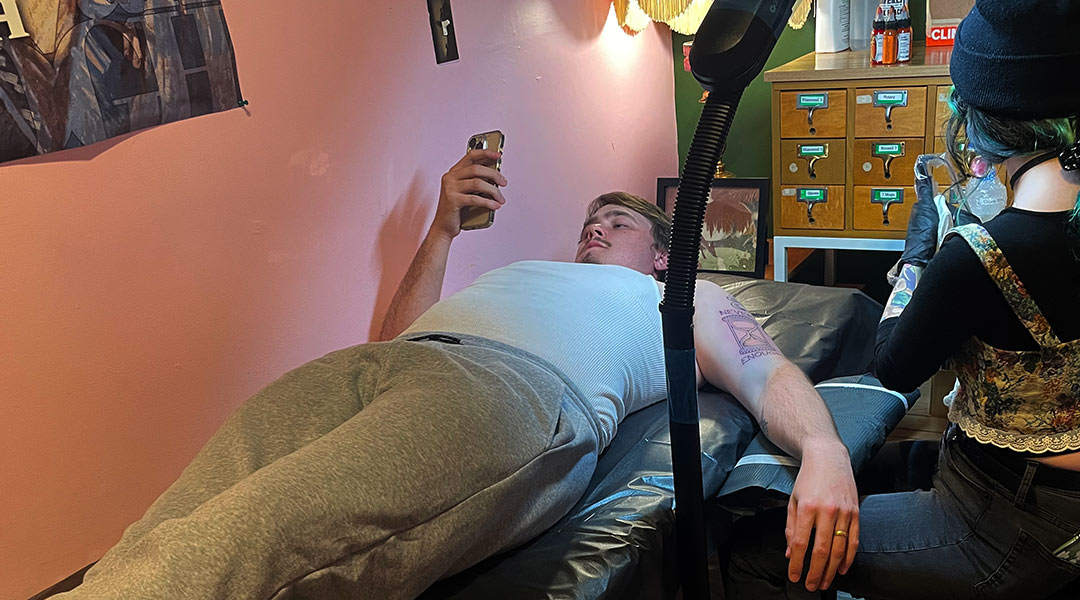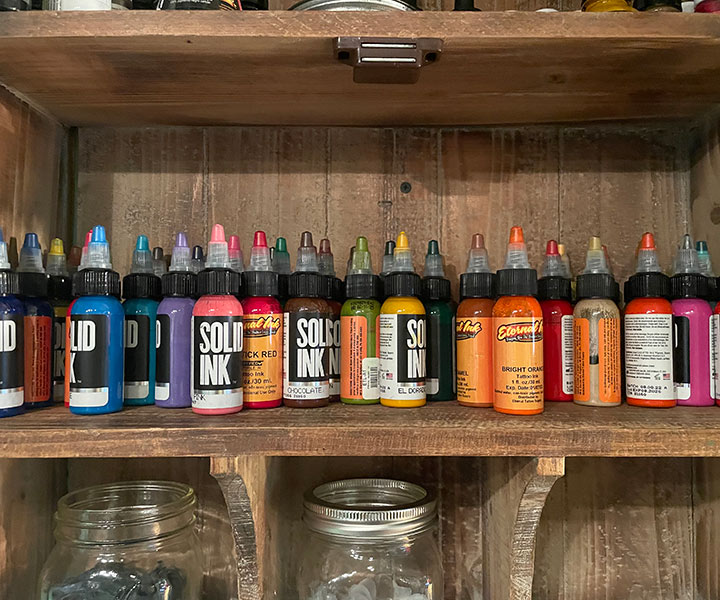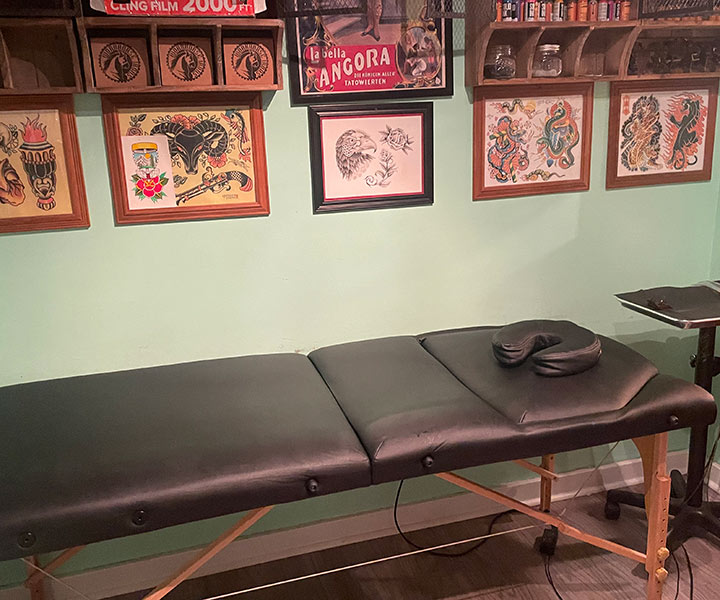A man gets an hourglass tattoo done on his arm at Southern Cypress Tattoo shop in Five Points. (Photos by P.J. Williams)
Getting a tattoo imprinted on your arm or ankle is as popular a trend as ever, but many don’t know much about the art form.
Here are 10 interesting facts you might not know about tattooing in South Carolina.
1. Tigers vs. butterflies
The website Hola lists the most popular tattoos nationwide, with the butterfly leading the way. In South Carolina, the Clemson tiger is the most popular tattoo, according to Kicks Country 99.
2. How much does a tattoo cost?
When it comes to pricing, amounts vary from parlor to parlor. What you pay for a tattoo is dictated by size, placement and complication of design. Most shops have prices between $50 and $100. The time the tattoo takes to complete is an additional charge, ranging from $140 to $160.
Names, dates and anything considered relatively “small” costs just above $100. Larger tattoos such as half sleeves will cost you more.
The most expensive kind are full sleeve tattoos. The average cost is between $1,500 and $6,000, according to Removal: Tattoo Removal and Fading.
3. That’s illegal
The South Carolina Legislature prohibits tattoos of the head, neck, and face area in South Carolina – the only state in the United States to do that, according to the Department of Health and Environmental Control. The U.S. military also prohibits tattoos above the neckline.
4. Regulation, certification and licensure
All tattoo artists must have certifications in the handling of blood-born pathogens, infection control, and CPR from either the American Red Cross or the American Heart Association.
Stephanie Melora, owner and artist of Southern Cypress Tattoo in Columbia’s Five Points, said she never had to perform CPR on anyone before. But she did have a client who had a seizure while being tattooed.
“I do not know any other artist that has ever had this happen to him or her …,” she said. “It was quite terrifying.”
Tattoo artists are not required to have a license in South Carolina, one of 12 states that does not require tattoo artists to be licensed. Tattoo facilities, though, must be licensed by state health authorities.
5. Making it legal in SC
Tattoo parlors did not become legal in the state until 2004, when the S.C. Legislature passed a law legalizing the practice if both the artists and their parlors meet a set of requirements. That includes the parlors obtaining a license. There are 24 licensed tattoo facilities in Columbia and 155 licensed tattoo facilities in the state, according to the state health agency’s website.
6. Do tattoos fade?
Tattoos usually start fading within a couple of years. Some people will return to a tattoo artist for a “touch up” to keep their tattoos looking sharp as they age. But if a tattoo is done correctly, people can go as long as 20 years without needing any maintenance. Most times, this depends on the size and type of tattoo.
Macrophages (large cells in the immune system) absorb the tattoo ink in the cells, which can cause tattoos to start fading sooner rather than later, according to the website Stories and Ink.
Spending a large amount of time in the sun and not taking proper care of the tattoos is also another reason they start to fade. Using too much petroleum jelly and aftercare products on the area on the skin can cause an infection.
7. Is it OK to have sleeve tattoos?
One thing that has become more common among people are tattoo sleeves.
A sleeve tattoo is a series of different tattoos or one large tattoo. Most people get their sleeves done on their arms or their legs. Religious and family tattoos are the most common sleeve tattoos, especially among men.
Tattoos are starting to become more and more acceptable in the workplace, with employers not discriminatng against job candidates based on their tattoos.
8. City ordinance causes problems
As of 2021, a new city of Columbia ordinance made it illegal for tattoo shops to open within 1,000 feet from existing tattoo parlor.
This new ordinance took a few people by surprise as some were trying to expand their businesses. Southern Cypress Tattoo owner Melora is trying to add a second shop in Five Points, but the city is not allowing it.
“I’m currently trying to open up my second studio across the street from myself, and I’m within 1,000 feet of myself,” said Melora, explaining her frustration with the new ordinance. “That new ordinance was kind of a huge slap in the face.”
9. Different tattoo styles
Tattoo artists’ styles vary from artist to artist and shop to shop.
Gypsy Moon Tattoo artist Carl Locklear said even within shops, artists’ styles can vary.
“We have Grace, who does beautiful, black and gray and watercolor tattoos,” said Locklear, who works in the Seven Oaks area shop. “Adam that does amazing geometric, mandala tattoos, and then Tabatha, who does phenomenal color work like New School and Anime tattoos, along with pop culture. The owner, Josh Wiley, does great neo-traditional tattoos.”
Locklear said he does minimalist fine-line and old-school traditional tattoos.
10. What do they mean?
Most, if not every, tattoo has some kind of meaning behind it.
Of 97 people surveyed by Psychology Today, 25% said their main reason for getting a tattoo was related to a personal story. That included remembering a significant person or marking a significant struggle they overcame. Another 12% said they got tattoos as a way of expressing themselves. Sixty percent said they didn’t approve of tattoos and would not get one.
These are a few of the tattoo inks that artists use on their clients to give it more color.
Inside a booth at Southern Cypress. Most people lie down when they’re getting a tattoo.
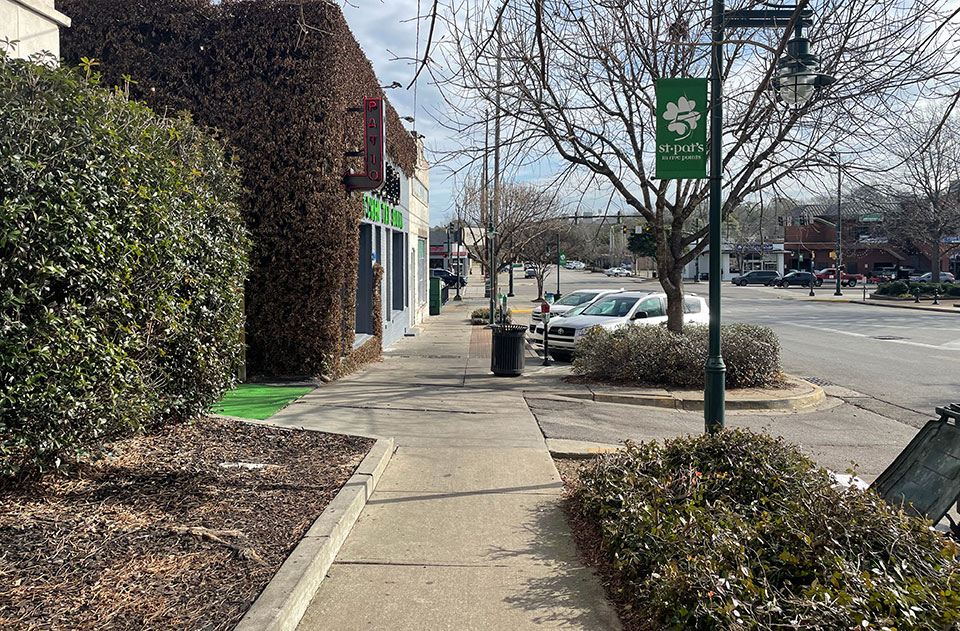
Southern Cypress Tattoo, located in Five Points, is one of the shops in Columbia that are restricted from adding an additional shop 1,000 feet from an existing shop.
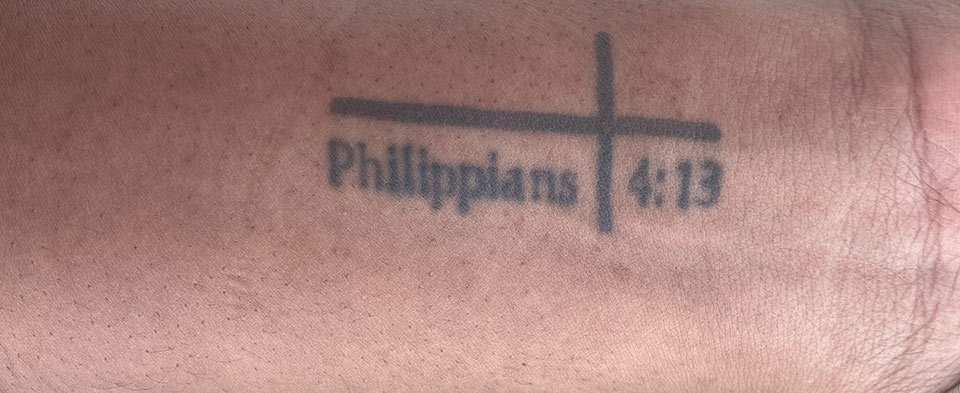
Tamara Pendarvis illustrates a Bible verse on her right wrist.

